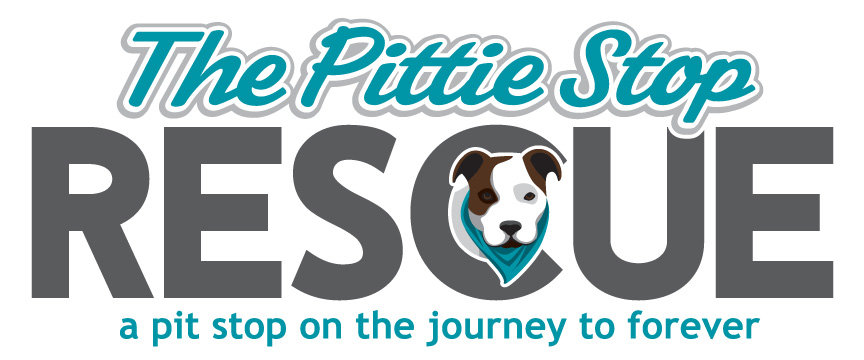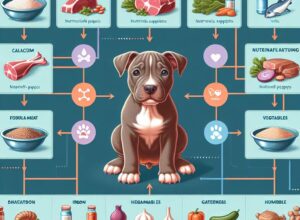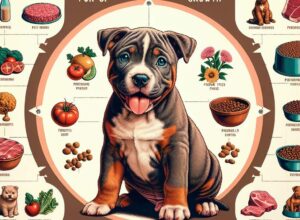
Key Takeaways
- Pitbull puppies need a balanced diet rich in proteins, carbohydrates, and essential fats to support their rapid growth.
- Portion control is critical; overfeeding can lead to obesity and associated health problems.
- Always opt for high-quality, age-appropriate dog food, avoiding toxic foods and those that can cause allergies.
- Supplements can be beneficial, but it’s important to choose them wisely and only when necessary.
- Establish a consistent feeding routine and monitor your puppy’s growth and health regularly.
A Healthy Start: Your Pitbull Puppy’s Morning Meal
Every morning is an opportunity to set the tone for your pitbull puppy’s day, and nothing does that better than a nutritious breakfast. Just like us, our furry friends need the right fuel to tackle their day of learning, playing, and growing. So, let’s dive into what makes a balanced breakfast for your pitbull puppy.
The Makings of a Balanced Puppy Breakfast
When crafting the ideal breakfast for your pitbull puppy, think about a plate you might prepare for a young athlete: a balance of protein, carbs, and fats. This meal needs to be energy-packed to help them grow strong and stay active throughout the day.
Most importantly, the breakfast should include:
- A high-quality protein source like chicken, beef, or fish to build muscle and repair tissue.
- Complex carbohydrates such as sweet potatoes or brown rice to provide lasting energy.
- Essential fats, especially omega-3 and omega-6 fatty acids, to support brain development and a shiny coat.
Portion Sizes: How Much to Serve?
Portion size can make or break your pitbull puppy’s diet. Overfeeding is a common mistake that can lead to obesity and health issues. Here’s a simple guideline:
Generally, pitbull puppies should have about 1/2 to 2/3 cup of puppy food for every 10 pounds of body weight per day, split into three meals.
However, these amounts can vary depending on your puppy’s activity level and growth rate. It’s essential to adjust portions as they grow and their needs change.
Dodging Dietary Mishaps: What Not to Feed Your Pitbull Puppy
Just as important as what to feed your pitbull puppy is knowing what not to feed them. Some foods that are perfectly safe for humans can be dangerous for our canine companions. Therefore, it’s crucial to be aware of these to prevent any accidental mishaps.
Toxic Foods to Keep Away From Your Puppy
Several common household foods can pose a risk to your pitbull puppy. Foods like chocolate, caffeine, grapes, raisins, onions, and garlic can be toxic. Even small amounts of these foods can cause serious health issues. Also, avoid giving your puppy cooked bones, as they can splinter and cause internal damage or blockages.
Understanding Food Allergies and Sensitivities
Food allergies and sensitivities can also present challenges in your pitbull puppy’s diet. Some pups may show adverse reactions to certain proteins or grains. Signs of food allergies can include itchy skin, ear infections, or gastrointestinal upset.
- Keep an eye on your puppy after introducing new foods.
- Consult your vet if you notice symptoms of allergies.
- Consider an elimination diet under veterinary guidance to pinpoint the culprit.
If an allergy is diagnosed, you’ll need to avoid the triggering ingredient in your puppy’s diet. There are many hypoallergenic dog foods on the market that can cater to these needs.
Supplements and Vitamins: Boosting Your Puppy’s Nutrition
While a well-rounded diet is usually sufficient for your pitbull puppy, there are situations where supplements and vitamins can provide additional health benefits. However, it’s essential to approach supplementation with caution and knowledge.
When Does Your Pitbull Puppy Need Supplements?
Supplements can be helpful if your pitbull puppy has specific health needs or if their diet lacks certain nutrients. For instance, puppies who are not thriving as expected or those with certain health conditions may benefit from dietary supplements. Always discuss with your vet before starting any new supplement.
Common supplements for puppies include:
- Fish oil for skin and coat health.
- Probiotics to support digestive health.
- Glucosamine for joint support, especially for larger breeds prone to hip dysplasia.
Choosing Safe and Effective Vitamins
Selecting the right vitamins for your pitbull puppy should always be done with your veterinarian’s input. Over-supplementing can be just as harmful as a deficiency. For example, too much calcium can disrupt bone growth, leading to skeletal problems.
Look for supplements that are specifically formulated for puppies and follow the recommended dosage. High-quality brands that have been tested for safety and efficacy are always the best choice.
Feeding Practices to Promote Optimal Growth
When it comes to feeding your pitbull puppy, questions abound. Let’s tackle some of the most common queries to give you clarity and confidence in your puppy’s nutrition.
How Many Times a Day Should I Feed My Pitbull Puppy?
Young pitbull puppies, up to six months old, should typically be fed three to four times a day. As they grow older, you can reduce this to two meals a day. This helps to manage their energy levels and supports their fast metabolism without overloading their digestive system.
Consistent meal times help regulate your puppy’s body clock and aid in house training. It’s also easier to monitor their appetite and health when they’re on a regular feeding schedule.
As your puppy approaches adulthood, you can consult your vet about transitioning to an adult feeding schedule, which is usually twice a day for most dogs.
Keep in mind that every puppy is different, and their feeding needs can vary based on their activity level, health, and growth rate. Always adjust their feeding schedule and portion sizes according to their individual needs.
- Under 6 months: 3-4 meals a day.
- 6-12 months: 2-3 meals a day.
- Adults: 2 meals a day.
Can Pitbull Puppies Eat Adult Dog Food?
Puppy food is specifically formulated to support growth and development, with higher protein content and essential nutrients that puppies need in larger amounts than adults. Feeding your pitbull puppy adult dog food can deprive them of these vital nutrients and may impede their growth.
Should I Wet My Pitbull Puppy’s Dry Food?
Moistening dry food can make it easier for some puppies to chew and digest, especially when they are transitioning from their mother’s milk to solid food. It can also enhance the food’s aroma, making it more appealing. However, this isn’t necessary for all puppies. If your pitbull puppy is eating their dry food without any issues, there’s no need to wet it.
How Do I Know If My Puppy Is Overeating?
Signs that your pitbull puppy may be overeating include rapid weight gain, bloating, and lethargy after meals. Overeating can lead to obesity and related health problems like joint issues and diabetes. It’s essential to follow feeding guidelines, monitor your puppy’s weight, and adjust their diet as needed. A healthy puppy should have a visible waist and you should be able to feel (but not see) their ribs without pressing hard.
What Human Foods Can Pitbull Puppies Safely Eat?
While it’s best to stick to a diet formulated for puppies, there are some human foods that can be safe and healthy for your pitbull puppy in moderation. These include:
- Carrots, which can be a good source of vitamins and a great chew toy.
- Lean meats like chicken or turkey, fully cooked and without any seasoning.
- Plain, cooked pumpkin or sweet potatoes, which can aid in digestion.
Always introduce new foods gradually and in small amounts to avoid upsetting your puppy’s stomach. Also, make sure to remove any seeds, pits, or bones before offering them to your puppy.
Feeding your pitbull puppy doesn’t have to be a complex task. By following these guidelines, choosing high-quality food, and paying attention to their individual needs, you’ll set them up for a lifetime of health and happiness. Remember, when in doubt, your vet is an invaluable resource for personalized advice tailored to your puppy’s unique requirements.



